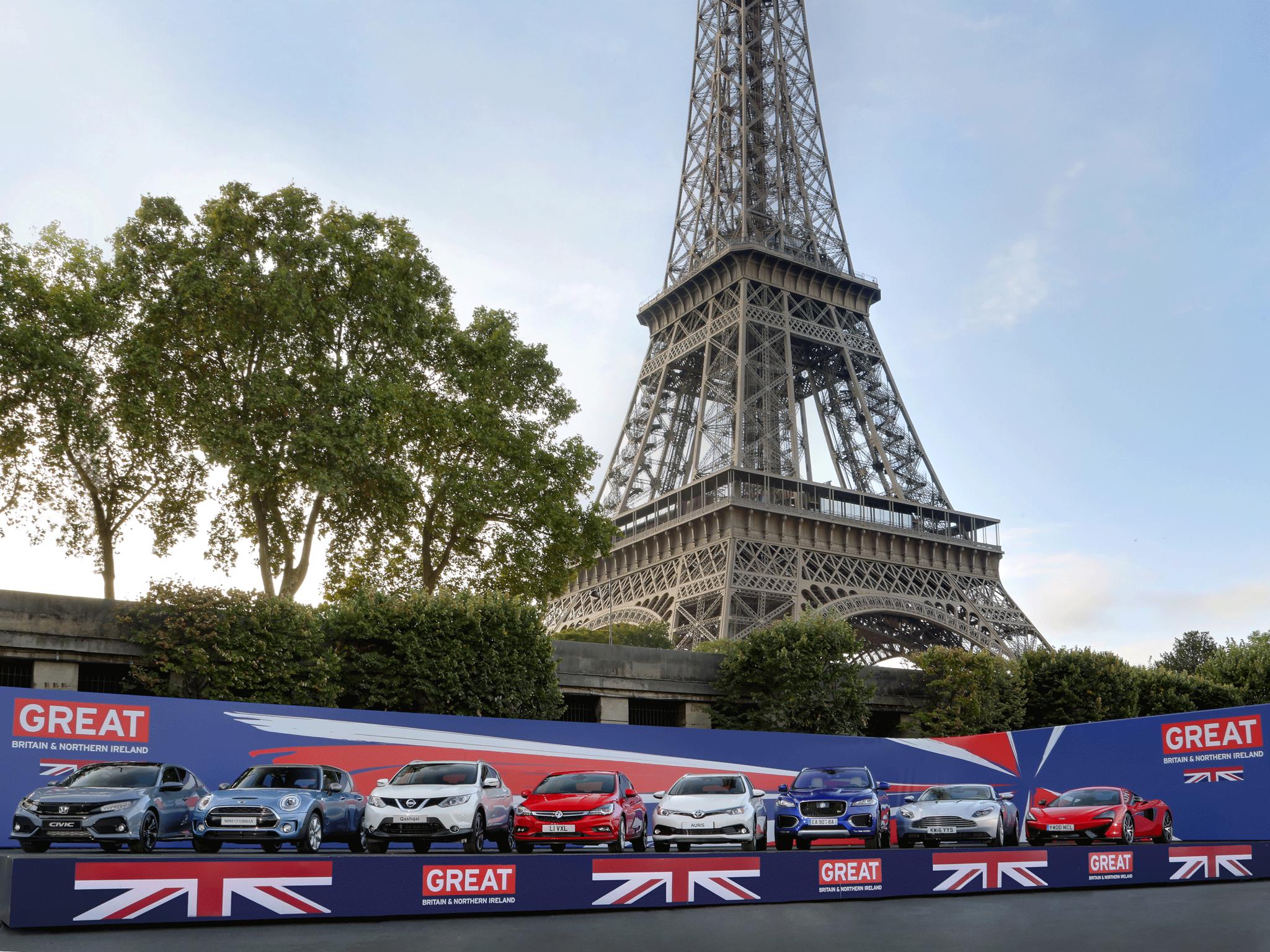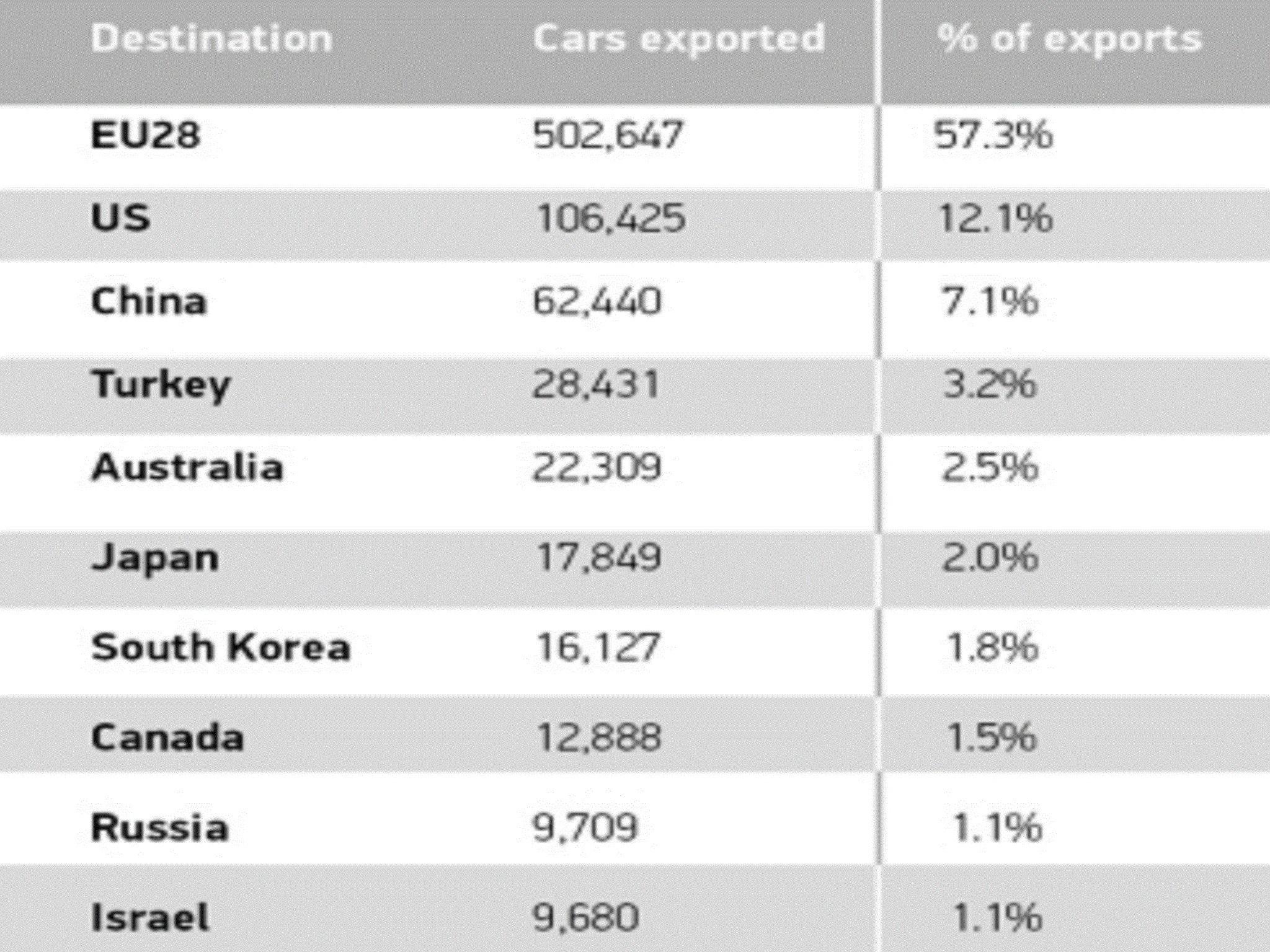Brexit latest: Tariffs on UK car exports to Europe would be 'disastrous' for jobs says Jaguar Land Rover boss
EXCLUSIVE: Hanno Kirner, executive director at JLR, issued the stark warning ahead of the Paris Motor Show

Your support helps us to tell the story
From reproductive rights to climate change to Big Tech, The Independent is on the ground when the story is developing. Whether it's investigating the financials of Elon Musk's pro-Trump PAC or producing our latest documentary, 'The A Word', which shines a light on the American women fighting for reproductive rights, we know how important it is to parse out the facts from the messaging.
At such a critical moment in US history, we need reporters on the ground. Your donation allows us to keep sending journalists to speak to both sides of the story.
The Independent is trusted by Americans across the entire political spectrum. And unlike many other quality news outlets, we choose not to lock Americans out of our reporting and analysis with paywalls. We believe quality journalism should be available to everyone, paid for by those who can afford it.
Your support makes all the difference.Post-Brexit trade barriers imposed on the UK car industry if the right deal is not reached would "frankly be disastrous", a senior executive at Jaguar Land Rover has warned.
Hanno Kirner, executive director at JLR, which is owned by Tata Group, based in India, issued the stark warning at a joint Government-industry “Great Britain” event, ahead of the Paris Motor Show.
Mr Kirner was speaking openly for many in the industry, including component makers, who talk privately about the danger of jobs going abroad if membership or strong access to the single market is curtailed after Brexit.
He added that tariffs would add to the cost and the complication of integrated cross-border supply chains and would "damage business and British jobs".
JLR is Britain's biggest exporter of any kind to China. It employs 42,000 directly, and invests £3.5bn a year in the UK.
If Britain failed to conclude a free trade deal with the rest of the EU and was forced to fall back on basic World Trade Organisation rules, British car exporters could face tariffs of up to 10 per cent. Both the Brexit Secretary, David Davis, and the International Trade Secretary, Liam Fox, have in recent weeks conceded that WTO rules for the UK could be the ultimate outcome.
Some 57 per cent of the 1.6 million cars made in Britain find buyers in the rest of the EU. The next largest market is the US (12 per cent), followed by China (7 per cent).
UK car exports

Much the same goes for engines and commercial vehicles. About a million jobs depend on the UK auto industry.
Under an azure sky, with the Eiffel Tower as the backdrop, the British motor industry put a brave face on Brexit and displayed some of their finest wares ahead of the Paris Motor Show.
As with Mr Kirner, they were there to remind the world, and especially the Government ministers, diplomats and trade officials present, that the British car industry is healthy and well, but worried about Britain leaving the EU.
Lined up were vehicles made by a remarkably diverse and cosmopolitan industry. Each represented a sizeable chunk of the jobs and prosperity of the communities that host them: the new Hona Civic (Swindon); the Mini (Oxford); Nissan Qashqai (Sunderland); Vauxhall Astra (Ellesmere Port); Toyota Auris (Burnaston); Jaguar F-Pace (Solihull); Aston Martin DB11 (Gaydon); McLaren 570S (Woking).
Mark Garnier, the junior minister at the newly constituted Department for International Trade, said he recognised the importance of zero-tariff access for the industry in Europe and that the firms "need to get the engineers you need" for "an incredible jewel".
Mike Hawes, chief executive of the Society of Motor Manufacturers and Traders, added that the current access to markets and talent would be "not easy to replace". Tariffs in an industry where components cross more than one border through manufacturing would be "administratively hellish" as one industry insider put it.
Though the topic was much less talked about, the free movement of labour is just as important to car companies with a global presence and headquartered in Japan, Germany, India and the US. The companies, especially the German ones, need to move their managers, engineers and staff around with a minimum of hassle. They do not, they admit, want their chief designer waiting in a queue for a work permit.
All the companies put on a united front at Paris, but there was no mistaking their anxiety. As models become due for replacement and big investment decisions loom, most agree that the UK's relationship with the EU will be a vital consideration in the next few years.
Join our commenting forum
Join thought-provoking conversations, follow other Independent readers and see their replies
Comments